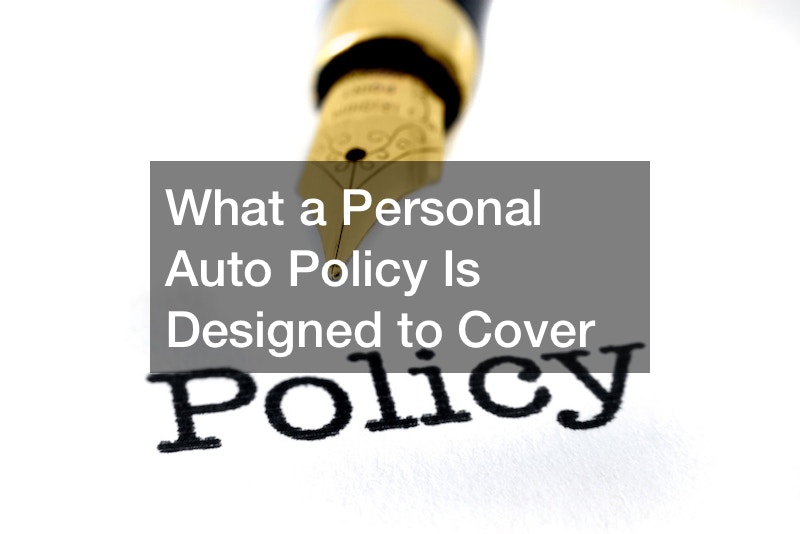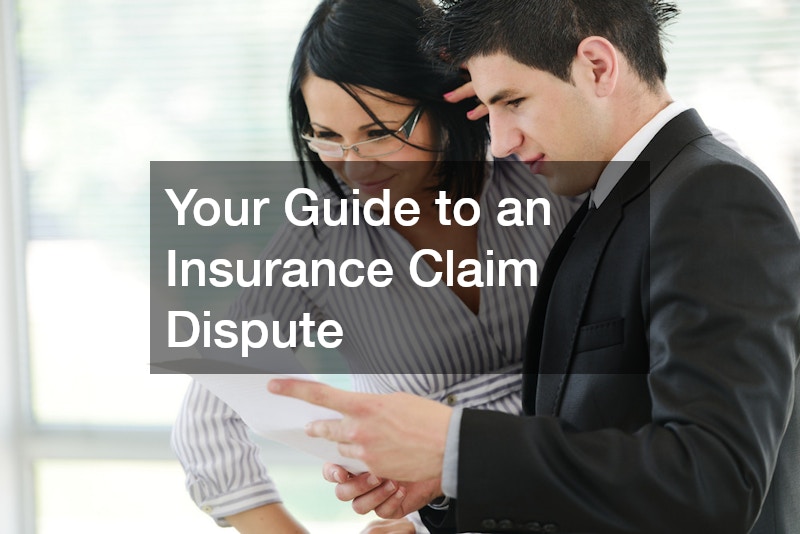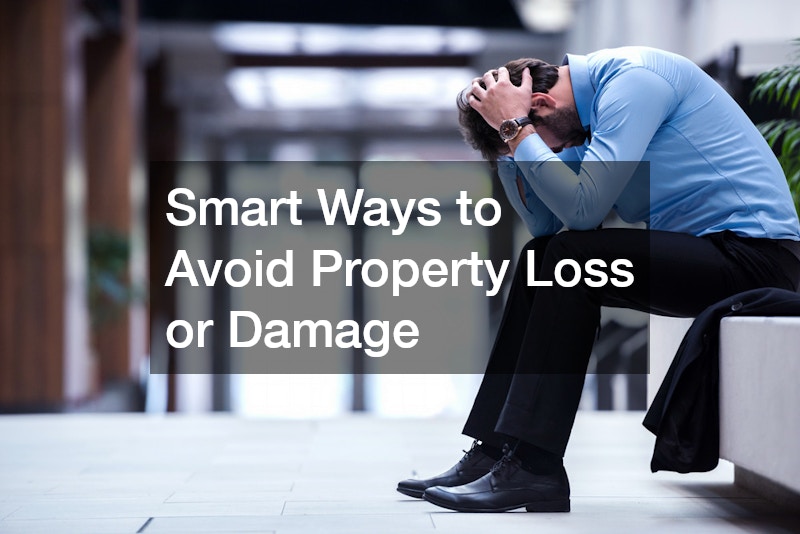What a Personal Auto Policy Is Designed to Cover

Your car is more than just a mode of transportation: it’s your home away from home. So it stands to reason that when you own a vehicle, you should also have comprehensive insurance coverage for it as well. That said, not every automaker offers personal auto insurance (sometimes called third party liability coverage). If yours does, the type and amount of coverage may vary from one company to another. Fortunately, most insurers offer two types of personal auto insurance policies: a classic policy and an endorsement policy. This is because both have different uses depending on the needs of the insured and the risks they face. Understanding what these terms mean can help you choose the right policy and protect your assets in the event of a claim or loss.
Auto insurance protects the things you own in case something happens to them while they’re not under your care. It also protects liability if someone gets hurt by your car, or if someone gets injured while using it without your permission. Finally, most personal auto policies also cover uninsured motorist coverage that helps pay for repairs after an accident, with a driver who doesn’t have enough insurance coverage on their own vehicle.
What Is a Personal Auto Policy?
An auto insurance policy is designed to cover three main things: the car, the liability of the driver, and third-party property damage. Each of these coverages is important to have in your auto insurance policy. When reviewing an auto insurance company’s offerings, take a look at what’s covered. Understanding what a policy is designed to cover is the first step in choosing the right policy for your needs. Collision coverage is designed to cover the cost of repairing or replacing your car if it’s damaged by another car, a tree, another vehicle, or a roadside object.
If you’re in an accident that injures someone, you’re more likely to be held responsible than if you were driving a commercial vehicle. That’s why it’s essential to have personal insurance coverage for your car. With a personal auto policy, you’re typically covered for injuries to others, or damage to their property. Depending on your state’s laws and your policy, you may also be covered for injuries to yourself. If you have a classic policy, it will likely provide liability coverage for bodily injury and property damage only. If you have an endorsement, it will likely provide liability coverage for bodily injury and property damage and may also offer uninsured motorists coverage.
In terms of auto accident lawyers, they’ll help you in the event of an auto accident situation. This includes handling the legal aspects of your case, helping with insurance claims, and getting you medical treatment and care. They can also help you with pain and suffering and other financial issues. If you have had an accident that was caused by someone else’s negligence, you may also need help from an accident reconstructionist to find out what happened and why. No matter what kind of case you have, an auto accident lawyer can assist you.
Auto Body Damage
If someone damages your car or someone else’s car in an accident, you may be covered, for instance, under your Volvo car repairs, auto policy auto body damage coverage. This coverage will cover reasonable costs to repair or replace your car’s exterior and interior. If a third party damages your car, you may be covered under your personal auto policy’s auto body damage coverage. This coverage will cover reasonable costs to repair or replace your car’s exterior and interior.
Foggy or Shattered Windshields

Broken windshields and indirectly related car damage from an accident only sometimes result in an insurance claim. Your auto insurance provider will likely cover the cost of repairing or replacing the windshield. They will probably cover up to $200, depending on your provider. Collision Damage Coverage (CDP) This is a type of coverage that can come standard on your auto insurance policy. It will typically pay out of pocket for your repairs up to $50,000. If your windshield is cracked and the glass is broken but the pane is still intact, your insurance provider may cover the cost of just the repair. Keep in mind that CDP does not pay for the cost of replacing the windshield. If you have collision damage to your vehicle, your auto insurance provider may cover up to more than you expect for repairs. This may include the cost of repairing the windows.
Windshield damage is one of the most common claims made under a personal auto policy’s windshield coverage. This coverage will help you pay for a new windshield if someone damages your auto glass in an accident. If your car sustains damage in an accident, your personal auto policy’s windshield coverage will help you pay for a new windshield if someone damages your windshield in an accident. Auto insurance policies vary by state and carrier, but most policies don’t cover windshield repairs. This means you’ll have to pay out of pocket for your broken windshield.
Repairing a windshield is an expensive proposition, and it can be even more costly if you need to replace the entire windshield instead of just the cracked section, or worse, hire towing services because your car is no longer driveable. The good news is that your auto insurance company may pay out of pocket for some windshield damage. The bad news is that they probably won’t cover anything beyond a few hundred dollars in repair costs. In other words, they will only reimburse you up to this dollar amount towards your deductible and/or policy premium. If you have comprehensive coverage – and most people do – there’s a chance your auto insurance provider will cover the remaining cost of repairing or replacing your broken windshield.
Collision Coverage
Collision coverage is designed to help pay for damage or loss caused by a car accident. It will cover the cost of repairs to your car if it’s hit by another car, by a tree, or by another vehicle. You can choose to include collision coverage with your comprehensive coverage or as a stand-alone option. Some insurance companies offer a discount on your monthly premium if you choose to add collision coverage. If you want to lower your car insurance premiums but are hesitant because you don’t want to add unnecessary coverage to your policy, reconsider. Although there are some things you might want to cover (like the cost of replacing a new car if yours gets totaled in an accident), the majority of collision coverage is designed to help pay for damage to your car in the event of an accident. Most reputable insurance companies will offer you a lower premium if you choose to add collision coverage.
Why Is Comprehensive Coverage Mandatory?

Comprehensive coverage is a type of insurance that protects you if your car is stolen and later destroyed by a third party. While comprehensive coverage does not specifically protect you from the financial consequences of a car accident, it does protect you from property damage and theft. If your car is stolen and destroyed, comprehensive coverage will help you recover some of your assets. This coverage is mandatory in all states, so it’s important to make sure you have it.
Collision coverage kicks in after an accident and helps pay for your car if it’s damaged in the accident. Uninsured motorist coverage then helps cover any additional costs associated with repairing your car or repairing your car if it’s hit by an uninsured driver. In most cases, uninsured motorist coverage will kick in after the at-fault driver’s insurance company has paid for any damages to your car. If the at-fault driver doesn’t have any insurance coverage, your insurance company will help you get back on the road.
Auto Damage
If your car sustains damage in an accident, your personal auto policy’s auto damage coverage will help you repair or replace your car’s damaged parts. If someone damages your car or someone else’s car in an accident, your personal auto policy’s auto damage coverage will help you repair or replace your car’s damaged parts.
The Fine Print: What You Need to Know Before Buying an Auto Insurance Policy
The fine print in your auto insurance policy can make or break your coverage. The first and most important thing to know is that there are many factors that contribute to your rate, including the car’s value and the type of coverage you choose. So, how do you know what kind of coverage is right for you? We recommend taking a few minutes to consult an insurance agent or review your policy yourself. You should also consider purchasing supplemental insurance coverage like a home/personal policy or a business policy. These types of policies can often provide additional coverage or help to lower your overall premium. Next, be sure to familiarize yourself with any exclusions and limitations that may apply to your coverage. An example would be if your policy covers damage caused by accidents and then excludes damage caused by falling objects. Other examples of limitations that may apply are the type of vehicle you drive and the location where you drive.
Why Is Collision Coverage Important?

When you get into a car accident, you may be held responsible for any damage your car sustains. That means you may have to foot the bill for repairs or even buy a new car if you don’t have enough coverage. Collision coverage is a type of auto insurance that helps protect you from this financial risk. This coverage typically covers damage to your car that’s the result of another car colliding with yours, even if you and the other driver are at fault.
Uninsured Coverage
Uninsured coverage is a type of insurance that helps pay for losses that are not the result of a covered claim. This coverage is typically provided by all comprehensive policies, and it pays out a predetermined amount to someone who sustains an unrelated loss, like a car accident. This amount may fluctuate depending on market rates, but your personal auto policy’s uninsured coverage will provide you with some financial protection in case you suffer an accident and are not covered by insurance, or are in need of a personal injury law office.
What Auto Insurance May Not Cover

Personal auto insurance plans may not cover your car’s auto repair service or replacement costs, including those related to damage, damage to your car’s value, or theft. Additionally, your policy may not cover your medical bills if you endure injuries in an accident. These costs are typically covered by third party insurance or the at-fault driver’s insurance. If your car is stolen and later destroyed by fire, your personal auto transmission service policy may not cover your losses. This type of coverage is provided by some comprehensive policies, so you’ll want to check your policy to see if it provides it. You may also not be covered under your policy if you were driving under the influence of drugs or alcohol.
Finding the Right Collision and Uninsured Motorist Coverage
The collision and uninsured motorist coverage you choose will depend on your personal financial situation and the value of your car. After you determine what kind of coverage you want to purchase, it’s important to remember that the coverage amount you choose will depend on your personal financial situation and the value of your car. If you choose to purchase comprehensive coverage, you’ll want to decide whether your car is worth less than what’s required to repair it or less than the value of a new car. If your car is worth less than the value of a new car, but still worth a lot to you, you might want to protect it with collision coverage. If your car is worth a significant amount to you and is also worth more than a new car, you might want to consider purchasing collision coverage. This way, if your car is damaged in an accident, the coverage will help pay for the cost of the repair no matter the cost of repairing a new car.
Summary
A personal auto policy is a type of auto insurance that protects you and your assets in the event of an accident. Comprehensive coverage helps protect you from property damage and auto body damage. Windshield replacement coverage helps you pay for a new windshield if someone damages your windshield in an accident. Uninsured coverage helps you recover your losses if you’re not covered by insurance, such as if your car is stolen and later destroyed by fire. Make sure you have the right coverage and understand what it covers.



